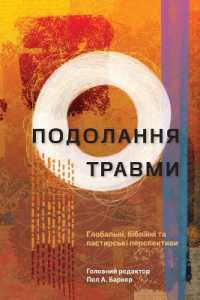- ホーム
- > 洋書
- > ドイツ書
- > Humanities, Arts & Music
- > History
- > antiquity
Description
(Short description)
In the period from about 200 B.C. to the early Roman imperial period, all regions of the Mediterranean underwent a profound process of political, economic, and cultural transformation. This book seeks to provide a balanced and multi-faceted account of this process. Drawing from diverse fields of material evidence, such as art, architecture, inscriptions, and objects of consumption, the individual chapters contrast the positive qualities and effects of cultural exchange with disruptive factors such as violence, dominance, and subjugation.
(Text)
The purpose of the volume is to propose a New Perspective on Cultural Transformation in the Hellenistic Mediterranean, exploring the dynamic processes of cultural formation with a collection of essays, which offer fresh insights into how the material world - from objects and buildings to texts and inscriptions - played a central role in negotiating values and ideas across time and space.
Through a series of case studies and in-depth explorations, the contributors tackle pressing questions, such as:
How did objects, structures, and writings communicate and shape societal values?
In what ways did these material forms reflect and actively transform the social context of the era?
How did Roman hegemony influence pre-existing institutions and cultural norms?
What role did 'foreign' objects and practices play in reshaping Roman and Italic traditions?
And how did the acquisition and display of prestige goods, languages, and styles both reinforce and disrupt social systems?
Bringing together diverse material evidence-art, architecture, inscriptions, and consumer goods-the chapters offer a nuanced understanding of cultural exchange, examining both its constructive and disruptive impacts, shedding light on the complex interplay of power, identity, and material culture that shaped the Hellenistic Mediterranean.
(Author portrait)
Dominik Maschek is Professor of Roman Archaeology at the University of Trier and Head of the Department of Roman Archaeology at the Leibniz Centre for Archaeology (LEIZA) in Mainz. As a trained classical archaeologist, his research covers a wide range of topics from Archaic Greece to Late Antiquity, with a particular focus on Roman architecture, art and material culture as well as conflict archaeology. He was a Rome Fellow of the Austrian Academy of Sciences and is currently conducting archaeological fieldwork on the siege and destruction of the city of Fregellae in central Italy.
Francesca Diosono, Born in 1977 in Perugia (Italy). PhD in Ancient History at University of Perugia in 2007. Since 2013 is Assistent Professor at Institut für Klassische Archäologie of Ludwig-Maximilians-Universität München. Among her major projects are excavations of the sanctuary of Diana in Nemi, the Latin colony of Fregellae, the sanctuary of Monte Sant'Angelo in Terracina, and the site of Villa San Silvestro in Cascia. Focus of his studies are Roman colonization, Roman religion, and ancient material culture. For a list of publications: https://lmumunich.academia.edu/FrancescaDiosono







